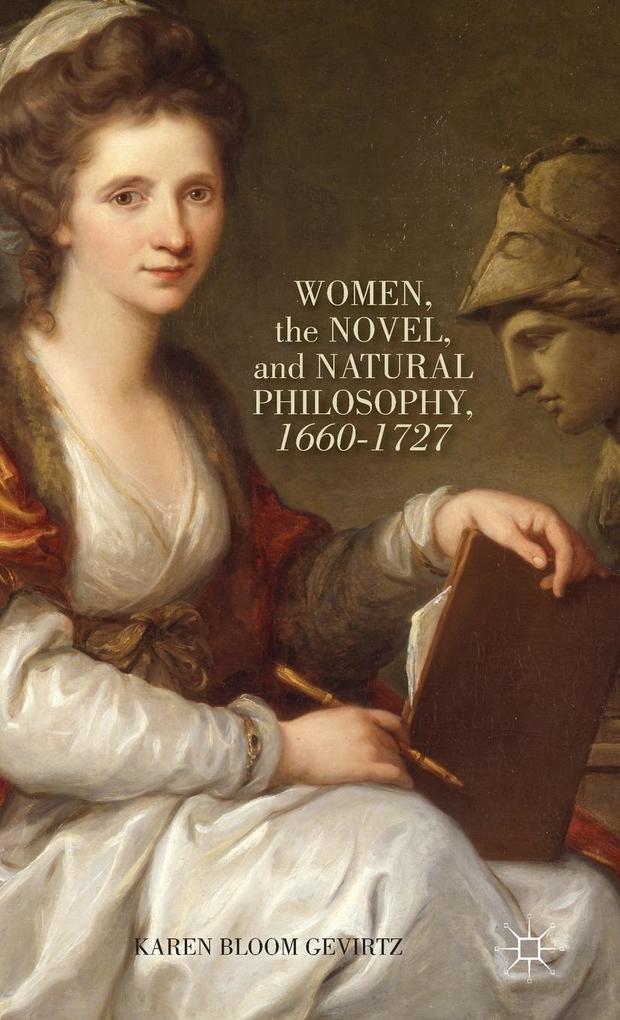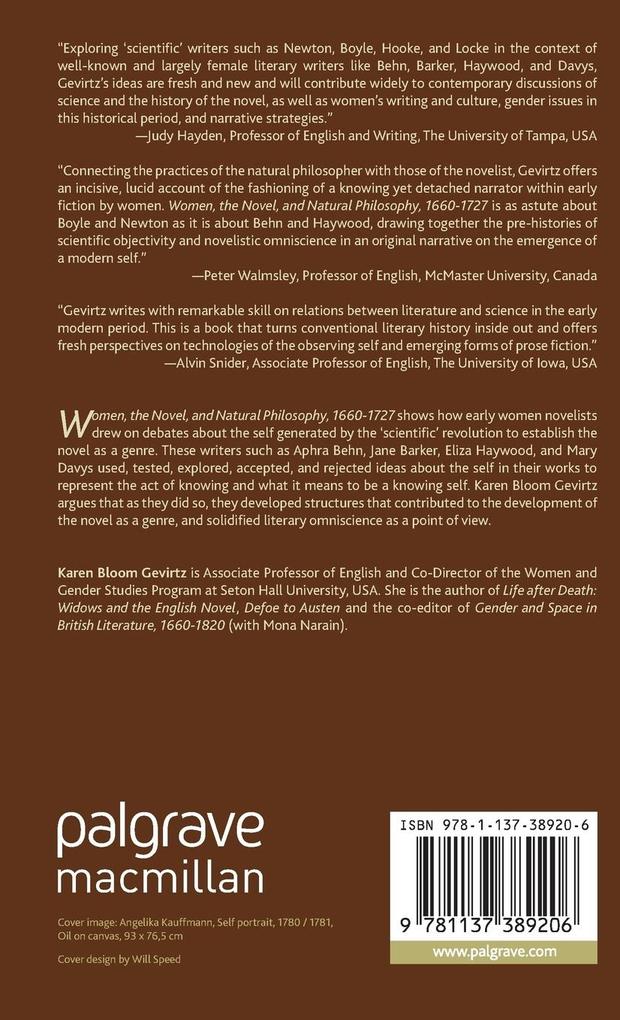Gevirtz s argument is
energetic and observant, bringing a fresh and relatively detached eye to the
history of the `rise of the novel. Her book turns our attention anew and with
originality to the history of `omniscience in fiction. (Ros Ballaster, Sharp
News, Vol. 24 (4), 2015)
" ' Exploring ' scientific' writers such as Newton, Boyle, Hooke, and Locke in the context of well-known and largely female literary writers like Behn, Barker, Haywood, and Davys, Gevirtz' s ideas are fresh and new and will contribute widely to contemporary discussions of science and the history of the novel, as well as women' s writing and culture, gender issues in this historical period, and narrative strategies. " - Judy Hayden, Professor of English and Writing, The University of Tampa, USA
" Connecting the practices of the natural philosopher with those of the novelist, Karen Gevirtz offers an incisive, lucid account of the fashioning of a knowing yet detached narrator within early fiction by women. Women, the Novel, and Natural Philosophy, 1660-1727 is as astute about Boyle and Newton as it is about Behn and Haywood, drawing together the prehistories of scientific objectivity and novelistic omniscience in an original narrative on the emergence of a modern self. " - Peter Walmsley, Professor of English, McMaster University, Canada
" Karen Gevirtz writes with remarkable skill on relations between literature and science in the early modern period. This is a book that turns conventional literary history inside out and offers fresh perspectives on technologies of the observing self and emerging forms of prose fiction. " - Alvin Snider, Associate Professor of English, The University of Iowa, USA












